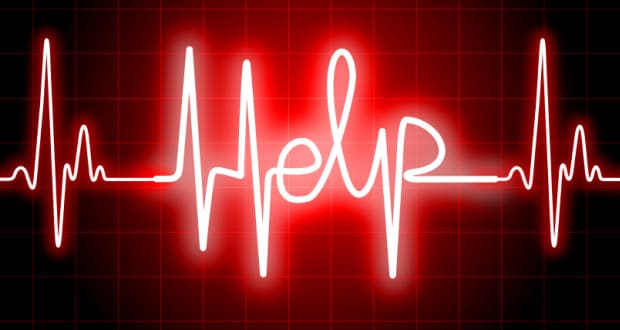Why Heart Attacks Are Increasing Among Young Adults

Myocardial infarction or “Heart attack” as it is commonly known is increasing and now reaching epidemic proportions. Knowledge that heart attack can cause early and unexpected death is now widespread. Many young adults, especially men, come routinely to do a health check-up even if they have no symptoms. Many times this is because someone near or dear has suddenly succumbed to the disease. Despite this, vast majority of youngsters and young adults fail to identify the warning signs, which occasionally leads to tragic outcomes.

Heart attacks in the young
Indians have heart attack almost a decade earlier than the west. In a recent study done in a large tertiary care centre in Chennai, 22 per cent of heart attacks occurred in patients less than 40 years of age and 5 per cent occurred in patients still in their twenties. The early incidence of heart attacks is attributed to the increased prevalence of diabetes in India.
Heart attack in young individuals is double jeopardy. The disease is never suspected in the first place, with most patients wrongly assuming their symptoms to be “gas” or “muscle” pain. In many cases patients do not seek medical help and go to a nearby pharmacy for some over-the-counter medication. Sometimes, unfortunately, even doctors disregard the symptoms and don’t take an ECG which is a diagnostic tool to detect a heart attack. The sad truth is that the muscles around the heart cannot survive beyond a few minutes without lack of oxygenated blood. As a consequence these patients lose much of the pumping capacity of the heart as a portion of their heart muscle is permanently scarred.
When it comes to hearts, men are actually the weaker sex!
It is well established that women, in general live longer than men. In almost all developed countries and most undeveloped ones, women outlive men, sometimes by a margin of, as much as, 10 years. While, men are stronger, taller, faster and less likely to be overweight, none of these attributes seem to matter over the long haul.
Estrogen the sex hormone is the guardian angel for females. Estrogen has multiple beneficial effects on cardiovascular health, lowering LDL (Bad) cholesterol and increasing HDL (Good) cholesterol. Estrogen is also an antioxidant which neutralizes toxic chemicals. As a consequence heart attacks are generally uncommon in women before menopause.
Is the gender gap closing?
Protective effect of estrogen is lost as menopause sets it. In the past two decades, however, there has been a notable increase in heart attacks in women. While scientists are still debating the exact cause, main reasons are considered work stress, early hysterectomy with oophorectomy (removal of uterus with ovaries) and change in eating and exercise habits.

Who is at risk?
Young adults must be aware that heart vessel disease is a long and slow process. While the heart attack itself may seem sudden and unexpected the underlying process starts much early, as early as teen age itself. It’s like an unexpected avalanche caused due to years and years of regular snowfall.
There are both non-modifiable and modifiable risk factors of coronary heart disease. Non-modifiable risk factors include male sex, age and family history while the modifiable risk factors include diabetes, hypertension, high cholesterol, smoking, unhealthy diet and inactive lifestyle.
While there is nothing we can do about our non-modifiable risk factors, we can and we must actively identify and treat the modifiable risk factors.
What should I Do?
As the saying goes prevention is better than cure, it is much easier to prevent heart disease than to treat it. The first step is to accept that all of us are at risk and must take precautions even if we feel absolutely healthy. Periodic health checkup for slow and silent killers like diabetes, hypertension and high cholesterol is a must. Obviously unhealthy food habits and sedentary lifestyle must be changed. The saying “Longer the waistline, shorter the lifeline” does have some truth in it.
Avoiding regular dining out, junk food, processed foods is critical. An occasional mutton Biryani does far less harm than daily fried chips, noodles and pastries. Smokers must realize that they are not only harming themselves but also their near and dear ones through passive smoking. It takes 10 years after quitting for the harmful effects of smoking to wear off.
What if I have chest discomfort?
Assume all chest discomfort to be possible heart attack and reach a medical center immediately. Patients who have pain at 2 am in the night should not wait till dawn to seek medical help. Studies have shown the biggest delay between symptom onset to treatment is actually the patients’ delayed decision to seek medical help. As explained earlier many patients especially youngsters assume their symptoms to be gas or muscle pain.
Insist on an ECG, which in most hospitals is less than Rs 100/-
Any Discomfort like pain, burning sensation, heaviness and compression anywhere between the throat and the stomach, including both shoulders, which occurs when you exert yourself like walking, carrying weights or climbing stairs is cardiac pain unless proved otherwise.
More than 50 % of patients with heart attack have these clues a week or two before the event but ignore it. Patients with these intermittent symptoms must get a treadmill test as their ECG and Echo-cardiogram may be normal.
Unexpected, unprovoked sweating, palpitations, giddiness along with chest discomfort are some of the other clues present in most patients
Is there a good news?
The bottom line is that despite increasing incidence and decreasing age of onset, heart attack remains a very treatable and in many cases an easily treatable disease. Attention to minor details in eating habits, lifestyle changes and identifying and treating risk factors will go a long way in leading a long and healthy life without heart disease.
[“source-ndtv”]
